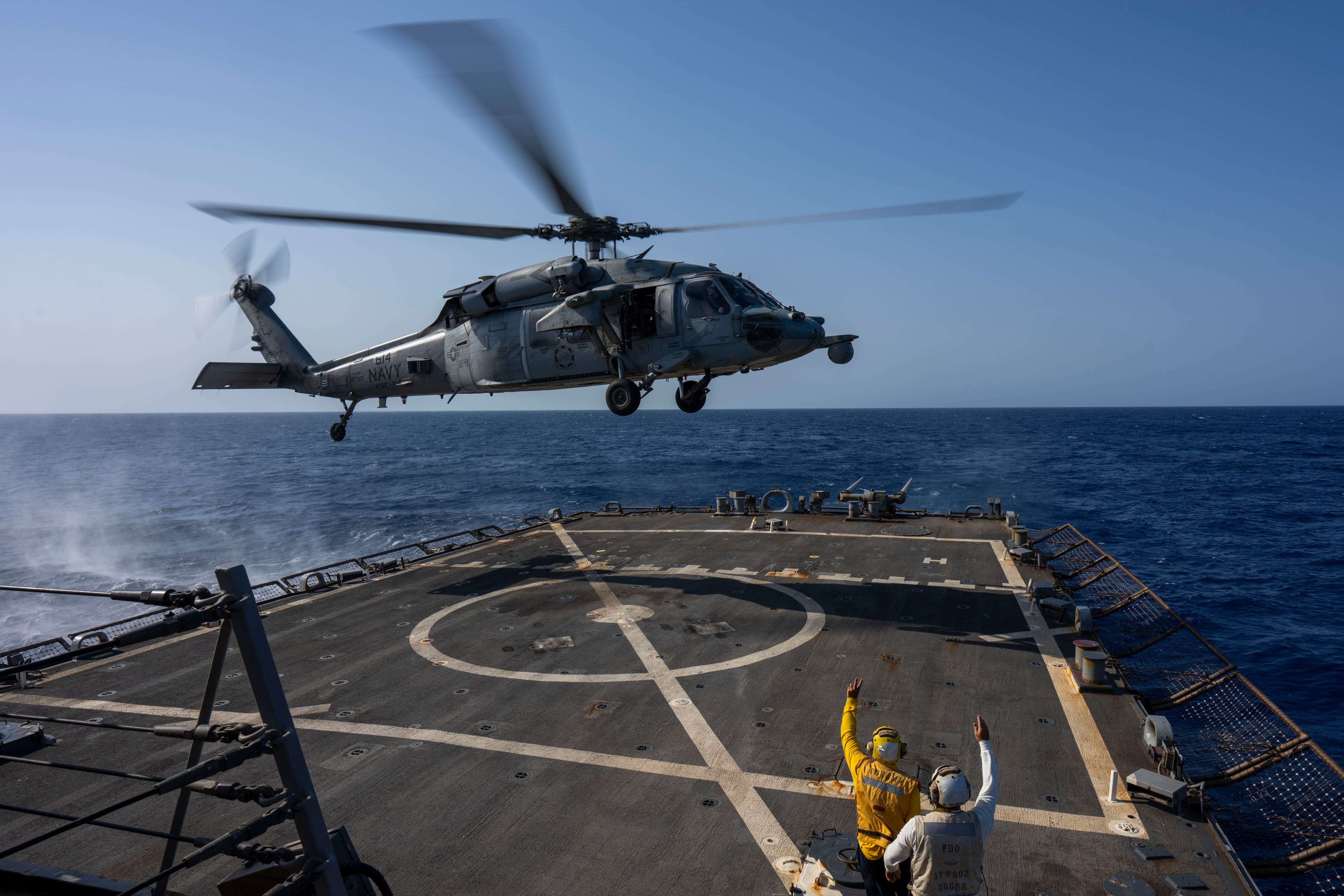DUBAI, United Arab Emirates — A U.S. Navy replenishment ship operating in the Middle East sustained damage in an incident which is under investigation, officials said Tuesday.
The damage to the oiler Big Horn comes after the oiler has supplied the Abraham Lincoln carrier strike group and remains in the region amid heightened tensions over the Israel-Hamas war and Israel’s ongoing strikes targeting Hezbollah in Lebanon.
RELATED
A U.S. Navy official, speaking on condition of anonymity to discuss matters yet to be made public, said the damage happened in the Mideast, but declined to elaborate on its location. A photo released by the U.S. military dated Sept. 5 showed sailors aboard the Lincoln receiving supplies from the Big Horn, while another on Sept. 11 showed the Big Horn alongside the Lincoln. The Lincoln is patrolling the Arabian Sea.
The official said the Big Horn’s crew was safe and there was no sign of an oil leak from the vessel.
Another U.S. official, who spoke on condition of anonymity for the same reason, said the vessel was being supported by private tugboats and an assessment was still ongoing for the vessel.
Rumors about the Big Horn’s condition began circulating early Tuesday after images posted to a website tracking shipping called gCaptain showed flooding purportedly on board the Henry J. Kaiser-class fleet replenishment oiler. The website described the Big Horn as having “ran aground … and partially flooded off the coast of Oman.”
RELATED

Though the Lincoln is powered by a nuclear reactor, its strike group has vessels powered by fossil fuel that need to be resupplied at sea. The aircraft aboard the Lincoln also need jet fuel. The Big Horn and other ships like it also provide other supplies.
Oilers like the Big Horn typically have around 80 civilians and five military personnel on board.
It remains unclear if there are any other replenishment ships like it immediately available in the Mideast. An AP survey of publicly released military images of similar replenishment ships run by the U.S. Navy’s Military Sealift Command showed none in the Mideast in recent months. The command declined to comment.
Copp reported from Washington.
Read the full article here
